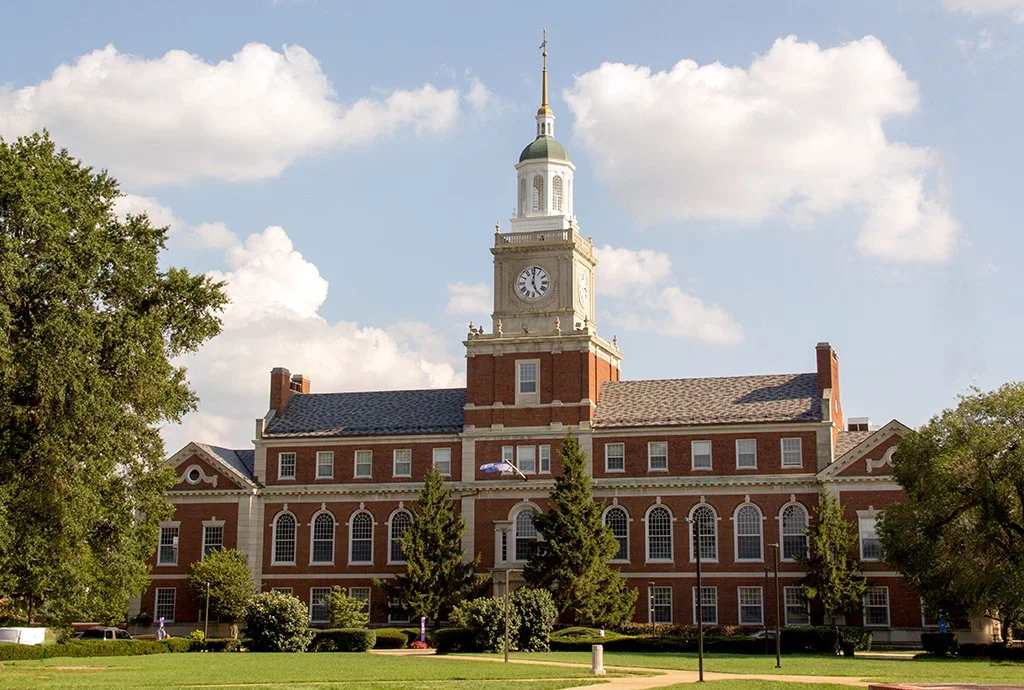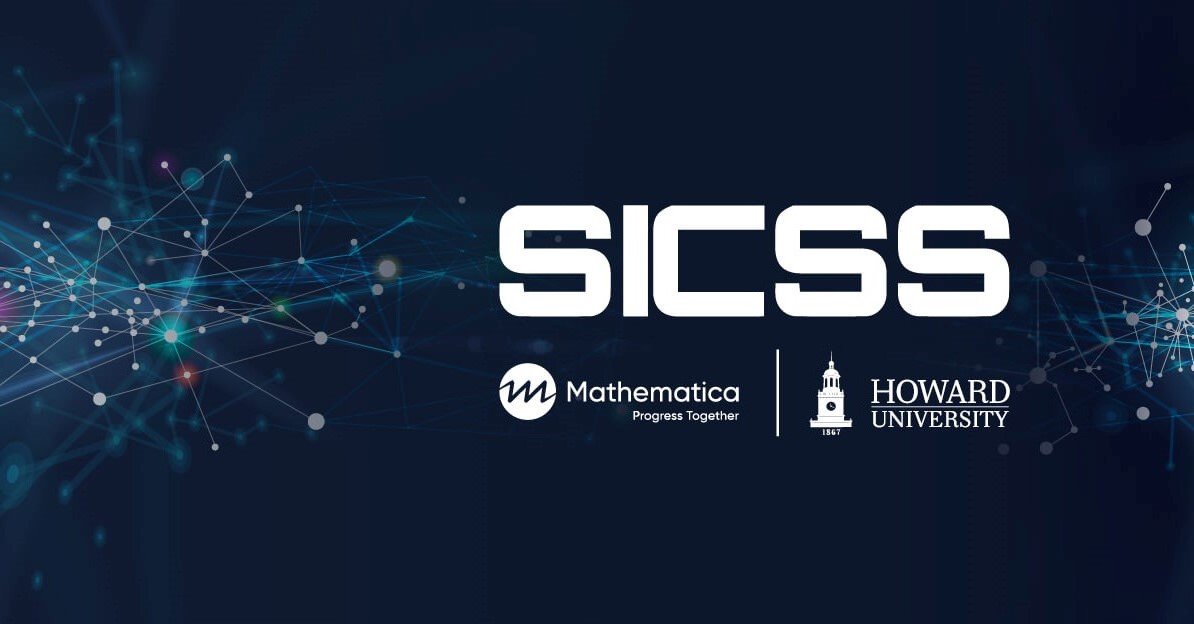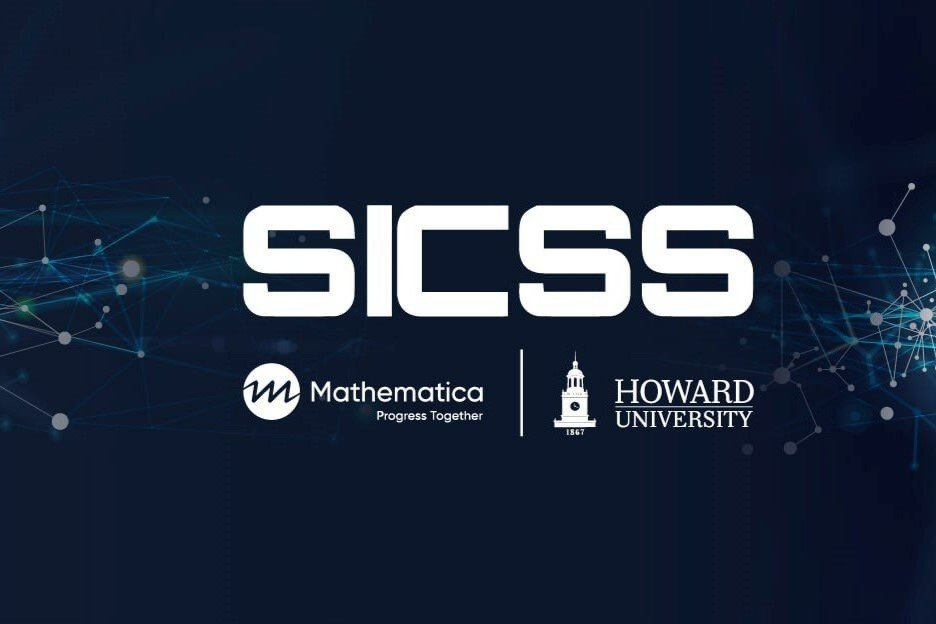Mathematica’s Paul Decker PhD Delivers Closing Plenary Address for SICSS-Howard/Mathematica 2021
Paul Decker PhD, president and chief executive officer of Mathematica and nationally recognized expert on policy research, delivered the closing plenary address on Friday, June 25th at SICSS-Howard/Mathematica 2021.
Timnit Gebru, PhD, one of Fortune’s Top 25 Leaders in the world, Delivers Keynote Address for SICSS-Howard/Mathematica 2021
Timnit Gebru, co-founder of Black in AI, advocate for diversity in the field of technology, and Fortune’s Top 50 Leaders in the World in 2021 delivered the keynote address for SICSS-Howard/Mathematica 2021.
Notable Scholars and Business Leaders share Research and Inspiration with Next Generation of Computational Social Scientists
The first Summer Institute in Computational Social Science hosted at a Historically Black College or University featured a panel of guest speakers who inspired participants with their research and professional trajectory. Lecture topics include re-entry into the job force for incarcerated people, financial statuses of small businesses in relation to the COVID-19 pandemic, social identities and systems of power, and discriminatory bias within technology.
Wayne A.I. Frederick Delivers Opening Plenary Address for SICSS-Howard/Mathematica 2021
Wayne A.I. Frederick, seventeenth president of Howard University, delivered the opening plenary address on Sunday, June 13th at the end of SICSS-Howard/Mathematica 2021’s pre-institute, Praxis to Power.
Innovative “Praxis to Power” pre-institute marks the beginning of the first Summer Institute in Computational Social Science at a Historically Black University
This blog post is the second of nine in a series called “The Future of Computational Social Science is Black” about SICSS-Howard/Mathematica 2021, the first Summer Institute in Computational Social Science held at a Historically Black College or University.
The Future of Computational Social Science is Black: Welcome SICSS-Howard/Mathematica 2021
This blog post is the first of nine in a series called “The future of computational social science is Black” about SICSS-Howard/Mathematica 2021, the first Summer Institute in Computational Social Science held at a Historically Black College or University. As you go through this package of blogs you will experience the journey we took in 2021.
From Princeton to London via Chicago: My Summer Institute in Computational Social Science journey
Continuing our series on the Summer Insitute in Computational Social Science, Joshua Becker traces his SICSS journey.
Before I get into this, you should know I’m a network researcher. So even though this is ostensibly about a summer program, it’s also about networking. I almost didn’t participate in the Summer Institute in Computational Social Science, or SICSS as I now know it fondly. At the time, I thought it was just about learning the skills — and I felt I had a solid methods foundation — and mainly just applied because it seemed like the kind of thing I was supposed to do as a grad student. Having never previously seen the gorgeous Princeton campus, I imagined the trip itself as little more than spending two weeks in suburban New Jersey rather than at home with my wife. Luckily, I applied. And luckily, I was accepted. Mileage may vary, but I made out well on the deal.
Istanbul as a regional computational social science hub
Summer Institute in Computational Social Science (SICSS) Istanbul was originally conceived in Oxford and Helsinki. Our co-organizer, Akin Unver, and the principal data scientist tutor, Ahmet Kurnaz of SICSS-Istanbul met at Oxford University in 2017 during their joint research project on how best to use data science to gather data from hard-to-access regions such as disaster areas or war zones. From this project arose the need to launch a data science summer school in Istanbul. Our teaching assistant (Yunus Emre Tapan) was then a participant at the SICSS-Helsinki, run by our other co-organizer, Matti Nelimarkka, and also discussed the possibility of launching an Istanbul chapter. Later in 2018, Akin and Emre met at the International Studies Association annual meeting for the first time and agreed to launch SICSS-Istanbul.
Uncovering new keys to countering anti-Black racism and inequity using computational social science
A new Summer Institute in Computational Social Science organized by Howard University and Mathematica promises to bring the power of computational social science to the issues of systemic racism and inequality in America. This marks the first time the successful SICSS model is being hosted by a Historically Black College or University.
Two weeks at the Summer Institute for Computational Social Science
In June, I attended the second iteration of the Summer Institute for Computational Social Science (SICSS), an intensive two-week program held at Duke that was intended to bring together researchers from across the social science and data science disciplines to learn and discuss topics in computational social science (CSS). Each day, the organizers Chris Bail and Matt Salganik taught mini-lectures on different CSS topics, we split into groups to work on activities together, and a speaker came in to present their research.
SICSS 2018 make all teaching and learning materials open-source
Teaching and learning resources from the 2018 Summer Institute for Computational Social Science have been made free to access online, allowing more people to explore in depth the field of computational social science.











